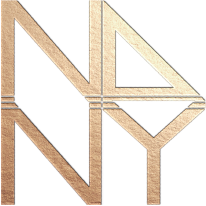INNOCENT: Brand Archetype
The Innocent brand archetype represents purity, simplicity, and optimism. Brands with this archetype evoke a sense of nostalgia, goodness, and faith. The Innocent brand is also known as the "Utopian" or "Child" archetype.
Pros:
The Innocent archetype is relatable, approachable, and endearing to consumers. It can attract a broad audience, including families, children, and people seeking security and trust.
Innocent brands can create a positive brand image associated with reliability, safety, and simplicity. This can help build trust and loyalty with consumers.
The Innocent archetype can evoke emotions of happiness, hope, and optimism. It can help brands to promote a brighter future and a better world.
Cons:
The Innocent archetype can be perceived as overly simplistic or naive. It may not be suitable for brands that want to be seen as sophisticated or complex.
Overuse of the Innocent archetype can make a brand seem overly idealistic or unrealistic. It is essential to balance optimism with practicality and realism.
The Innocent archetype may not be suitable for brands that need to address complex or sensitive issues.



Tips for best use:
Use bright colors, simple imagery, and a friendly tone of voice to create a sense of positivity and optimism.
Emphasize safety, trust, and reliability in your branding to develop a sense of security for your audience.
Focus on promoting a better future and a brighter world through your brand's values and actions.
Case studies:
Whole Foods uses the Innocent archetype in its brand messaging by emphasizing its commitment to providing customers with high-quality, natural, organic products. They portray itself as a trustworthy and ethical brand that cares about the well-being of its customers, the environment, and the planet.
Honest is a brand that uses the Innocent archetype by promoting the use of safe and natural ingredients in its products. They emphasize their commitment to transparency and honesty, creating a sense of trust with their customers. They also use cheerful and playful branding to create a sense of youthful innocence.
Dove is a brand that uses the Innocent archetype by emphasizing its commitment to real beauty and body positivity. They portray itself as a kind, caring brand that supports women of all shapes, sizes, and ages. They use empowering messaging and imagery to create a sense of innocence and purity.
Toms is a brand that uses the Innocent archetype by promoting its commitment to social responsibility and giving back to those in need. They portray itself as a caring, compassionate, and committed brand to positively impacting the world. They use imagery and messaging that create a sense of innocence and simplicity.
Takeaway: The Innocent brand archetype can be a powerful tool for creating positive emotions and building consumer trust. By emphasizing positivity, safety, and reliability, brands can develop a sense of security and optimism that can resonate with a wide audience. However, balancing idealism with practicality and realism is vital to avoid coming across as naive or simplistic.



